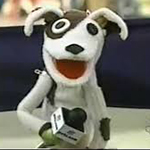 |
"Put it in the books!," says the excited radio play-by-play man Howie Rose after the last out is made in each glorious victory by the New York Mets, America's Team.
"Melt-up" also belongs in the books. Not the baseball record books, but dictionary books.
Bloomberg reported that melt-up hasn't made the dictionary (as of yet) because the term is in the eye of the beholder. Melt-up is the word used by traders to describe a stock market rally fueled by sentiment, rather than valuations, explained Bloomberg on April 26.
A melt-up is when "market optimism has come untethered from fundamentals and investors are chasing returns by jumping on an upward-moving bandwagon."
On-the-fence investors, who are waiting for a break in the melt-up so they can buy on the dip, are out of luck. A dip isn't coming as momentum, fueled by anxious stock buyers worried about losing out, drives prices higher and higher.
And of course, all things must come to an end. The panic buying, which is the last stage of the melt-up, ensues.. The melt-up then shifts to meltdown mode, a stock market version of the Chernobyl nuclear disaster.
Larry Fink, CEO of BlackRock Inc. thinks the current market may be experiencing a melt-up as investors, who got hammered by the sell-off late last year, return to recover their losses.
What's the difference between a "bubble" and melt-up? A melt-up may be viewed as a pre-bubble when stock prices are way out of line with corporate sales and earnings. If sales/earnings catch up to prices, there's no bubble. Congratulations. You are the smart money that caught the wave and rode it higher.
A melt-up preceded the dot-com bubble of 1999 and 2000, when prices soared and earnings growth (or a complete lack of earnings) fell far behind increases in stock prices.
There is a warning sign that the melt-up is headed to bubble territory. if you see any any sock puppet advertising, like the spots featured from the dot-com bubble poster child, Pets.com, head for the hills.
Pets.com became Pets.gone.


 Southern governors claim they know what's best for their working class, and it's not pay raises... A Ukrainian human rights group played a key role in convincing House Speaker Mike Johnson to hold a vote to send arms to Ukraine, Israel and Taiwan... Trump Media & Technology Group blames short-selling and not lousy outlook for its stock slump.
Southern governors claim they know what's best for their working class, and it's not pay raises... A Ukrainian human rights group played a key role in convincing House Speaker Mike Johnson to hold a vote to send arms to Ukraine, Israel and Taiwan... Trump Media & Technology Group blames short-selling and not lousy outlook for its stock slump. The techniques deployed by OJ Simpson's defense team in the 'trial of the century' served as a harbinger for those used by Donald Trump... People worry about the politicization of medical science just as much as they fret about another pandemic, according to Edelman Trust Barometer... Book bans aren't restricted to red states as deep blue Illinois, Connecticut and Maryland challenged at least 100 titles in 2023.
The techniques deployed by OJ Simpson's defense team in the 'trial of the century' served as a harbinger for those used by Donald Trump... People worry about the politicization of medical science just as much as they fret about another pandemic, according to Edelman Trust Barometer... Book bans aren't restricted to red states as deep blue Illinois, Connecticut and Maryland challenged at least 100 titles in 2023. The NBA, which promotes legalized gambling 24/7, seems more than hypocritical for banning player for placing bets... Diocese of Brooklyn promises to issue press release the next time one of its priests is charged with sexual abuse... Truth Social aspires to be one of Donald Trump's iconic American brands, just like Trump University or Trump Steaks or Trump Ice Cubes.
The NBA, which promotes legalized gambling 24/7, seems more than hypocritical for banning player for placing bets... Diocese of Brooklyn promises to issue press release the next time one of its priests is charged with sexual abuse... Truth Social aspires to be one of Donald Trump's iconic American brands, just like Trump University or Trump Steaks or Trump Ice Cubes. Publicis Groupe CEO Arthur Sadoun puts competition on notice... Macy's throws in the towel as it appoints two directors nominated by its unwanted suitor... The Profile in Wimpery Award goes to the Ford Presidential Foundation for stiffing American hero and former Wyoming Congresswoman Liz Cheney.
Publicis Groupe CEO Arthur Sadoun puts competition on notice... Macy's throws in the towel as it appoints two directors nominated by its unwanted suitor... The Profile in Wimpery Award goes to the Ford Presidential Foundation for stiffing American hero and former Wyoming Congresswoman Liz Cheney. JPMorgan Chase chief Jamie Dimon's "letter to shareholders" is a must-read for PR people and others interested in fixing America and living up to its potential... Get ready for the PPE shortage when the next pandemic hits... Nixing Netanyahu. Gaza carnage turns US opinion against Israel's prime minister.
JPMorgan Chase chief Jamie Dimon's "letter to shareholders" is a must-read for PR people and others interested in fixing America and living up to its potential... Get ready for the PPE shortage when the next pandemic hits... Nixing Netanyahu. Gaza carnage turns US opinion against Israel's prime minister.


 Have a comment? Send it to
Have a comment? Send it to 
No comments have been submitted for this story yet.